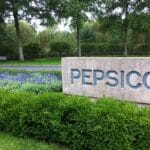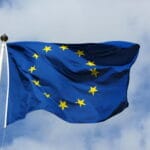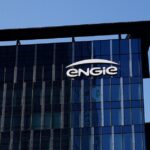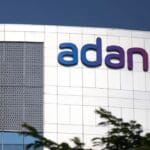Maersk, Unilever Deploy Saudi Arabia’s First Electric Van to Cut Logistics Emissions
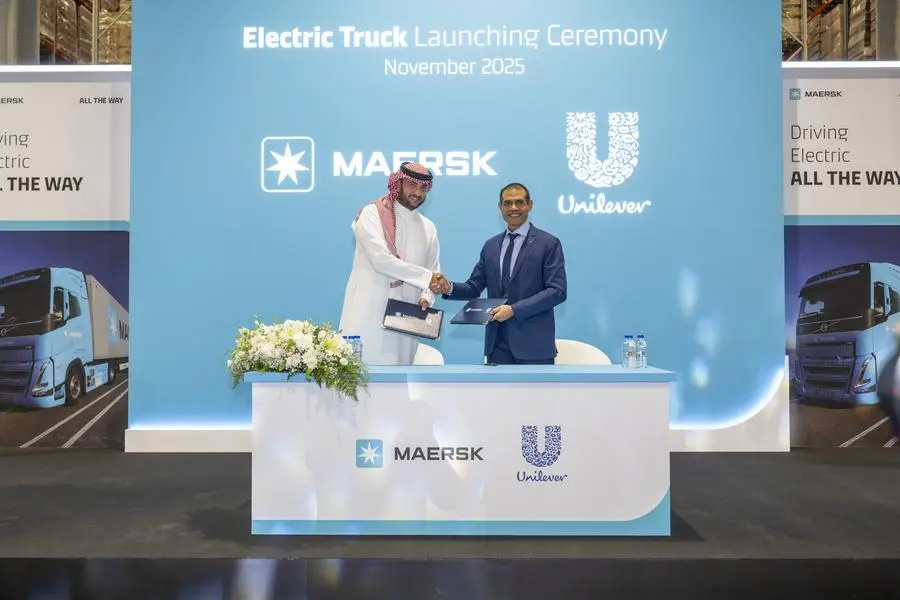
• First electric delivery van introduced in Saudi Arabia by Maersk and Unilever, advancing the Kingdom’s Vision 2030 decarbonisation goals.
• Operates from Maersk’s Jeddah Logistics Park, powered by a 64,000 sq. m rooftop solar plant and natural refrigerant-based cooling system.
• Part of Maersk and Unilever’s global push toward net-zero logistics—by 2040 and 2039 respectively—through electrification and renewable energy.
Launching Saudi Arabia’s First Zero-Emission Logistics Vehicle
A.P. Moller–Maersk and Unilever have launched Saudi Arabia’s first electric delivery van, marking a new phase in the Kingdom’s drive to decarbonize logistics and transport. The vehicle will operate from Maersk’s Jeddah Logistics Park, one of the region’s most advanced low-carbon logistics facilities, equipped with a solar-powered rooftop and energy-efficient cooling technologies.
The initiative directly supports Saudi Vision 2030, which targets a reduction of 278 million tonnes of carbon emissions annually and aims to meet half of national power demand through renewable energy. The new van will initially serve Unilever’s retail operations with the BinDawood Group, covering up to 3,500 kilometres per month within a 50-kilometre delivery radius.
Building a Greener Supply Chain
The deployment follows Maersk and Unilever’s decision to consolidate multiple warehouses into a single fulfilment centre at Jeddah’s Logistics Park—a move that has already reduced logistics emissions by five percent. The facility features a 64,000-square-metre solar array and a cooling system that substitutes seawater and ammonia for conventional potable-water systems, cutting both energy and resource consumption.
According to Maersk Saudi Arabia’s Managing Director Ahmed El Esseily, the introduction of the electric van represents a “practical 100 percent reduction in emissions compared to conventional diesel trucks” when paired with solar charging infrastructure. “We’re seeing growing potential to scale zero-emission trucking across the Kingdom as infrastructure improves,” he said, adding that partnerships with companies like Unilever are crucial to advancing sustainable logistics models.
Partnerships Driving Sustainable Value
Both Maersk and Unilever have emphasised collaboration as central to their decarbonisation strategies. The Jeddah initiative builds on joint planning across infrastructure, operations, and stakeholder engagement to ensure a scalable model for wider adoption.
Maersk already operates low-emission trucking and logistics solutions in 14 countries, including China, India, the United States, and several European and Latin American markets. The company has committed to achieving net-zero emissions across its global supply chain by 2040 through the integration of alternative energy sources, sustainable fuels, and technological innovation.
For Unilever, the launch supports its goal of reaching net-zero emissions across its value chain by 2039, with a specific target to halve logistics-related greenhouse gas emissions by 2030. Electrifying regional distribution fleets is one of several strategies the company is pursuing to meet its climate commitments.
RELATED ARTICLE: Maersk Introduces “Ane Maersk,” World’s First Large Methanol-Enabled Container Vessel
Aligning with Saudi Vision 2030
The partnership aligns closely with Saudi Arabia’s broader strategy to diversify its energy mix and accelerate private-sector participation in sustainability transitions. The Kingdom’s logistics sector—long dominated by diesel-heavy transport—has been identified as a key target for emissions reduction as part of its National Industrial Development and Logistics Program.
Industry observers say the Maersk–Unilever initiative could serve as a test case for broader adoption of electric commercial vehicles in Gulf Cooperation Council (GCC) economies, where decarbonising freight remains a complex challenge due to infrastructure constraints and harsh climatic conditions.
Global Implications for Decarbonized Transport
The project reinforces a growing trend among multinational corporations integrating local renewable energy and electric mobility into global decarbonisation strategies. For Maersk, the Saudi pilot strengthens its position as a leader in low-carbon logistics solutions in emerging markets. For Unilever, it represents a tangible step in cutting Scope 3 emissions within complex supply chains.
As electric mobility infrastructure expands across the Middle East, both companies are expected to extend the initiative to additional routes and partners. Beyond emissions reduction, the move is also seen as a signal to regional policymakers and investors that private-sector collaboration can accelerate the commercial viability of clean logistics at scale.
By integrating renewable-powered transport into a solar-equipped logistics hub, Maersk and Unilever have demonstrated how international partnerships can translate sustainability commitments into operational reality—advancing both corporate climate goals and national transition strategies in one of the world’s fastest-growing logistics markets.
Follow ESG News on LinkedIn

